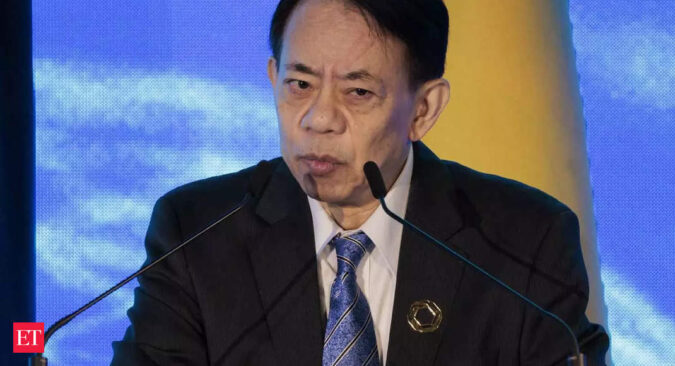He lauded the government for rightly placing emphasis on infrastructure investments and economic reforms, which would make the country more competitive.
Here to attend the G20 finance ministers and central bank governors’ meeting in Bengaluru, the ADB president said even though India’s growth rate may slip below 7% in the coming fiscal year, he is optimistic about the country’s growth prospects in the medium term.
“Despite the global headwinds, India’s economy has shown resilience. This is due not only to its large domestic market, but also prudent macroeconomic management,” he said. “India is expected to be one of the fastest growing economies in 2023 in the region, and globally.”
While the tensions between the US and China are worrying, for now, the result has been a net positive for India and other Asian economies as many multinationals are redirecting their foreign direct investment (FDI) to these countries, Asakawa said. “There is also an opportunity for India to integrate more deeply into global value chains,” he said. This would accelerate the transition of the country’s workforce from agriculture and informal sectors to formal enterprises in industry and services. He called for increased investment in human capital to achieve this transformation.
Between 2023 and 2027, ADB will work with India to “accelerate the structural transformation and job creation” by enhancing skilling initiatives and supporting micro, small and medium enterprises (MSMEs), Asakawa said. On Tuesday, it committed a $25 billion investment in India over a five-year period. The Manila-based multilateral agency also intends to make health, social protection and education interventions, he said.
The Economic Survey forecasts India’s gross domestic product growth in FY23 to be 6%-6.8%, whereas the International Monetary Fund projects a 6.1% growth. ADB expects Asia to expand by 4.6% in 2023 and South Asia by 6.3%.Despite the bright outlook, Asakawa flagged future concerns for Asian economies, especially as technology and artificial intelligence (AI), along with the rise and spread of nationalism, are making developed countries reconsider domestic manufacturing.
“Value chains may relocate away from Asia due to automation in advanced economies, and higher wages and increased logistical costs in Asia due to geopolitics,” he said.
DEBT SUSTAINABILITY
On the issue of debt vulnerabilities, the ADB president said his organisation is working with other multilateral institutions to identify and address debt concerns, and also highlighted the need for countries in Asia to work towards increasing tax revenue mobilisation to garner resources.
Since the Russian invasion of Ukraine in February last year, ADB has approved loans of over $2.2 billion to support several countries under its Building Resilience with Active Countercyclical Expenditures programmes, he said.
A countercyclical facility helps disburse emergency budget support to countries during a crisis.
“Debt vulnerabilities have risen in the region, particularly in countries with high external debt service burdens and limited foreign exchange reserves to sustain large structural current account deficits,” Asakawa said.
He said countries must mobilise domestic tax revenue resources to tackle further debt issues. “Domestic resource mobilisation (DRM) is crucial in addressing debt sustainability and achieving the SDGs (Sustainable Development Goals adopted by the United Nations),” Asakawa said.
Source link
https://www.infinitycompliance.in/product/online-company-registration-in-india/
